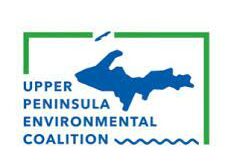
The following press release was issued by Michigan Tech’s Mark Wilcox:
For the past several weeks, students in Michigan Technological University’s Archaeology Field School have been documenting sites for Isle Royale National Park and Keweenaw National Historical Park. Thanks to a generous gift, this summer’s work was made easier with state-of-the-art equipment. With a donation from Eloise Haller and her late husband, Bill, the Department of Social Science, which runs the Archaeology Field School, was able to purchase a new “total station,” a collection of electronic equipment and software used to survey a site and capture and store all necessary data. The new station replaces equipment that dates back to 2002.
Eloise Haller made the gift following a conversation with Professor Emeritus Pat Martin, one of the founders of the Industrial Heritage and Archaeology program at Michigan Tech. Haller asked Martin to identify any unmet needs she might be able to meet. When Martin mentioned upgrading the department’s old digital surveying equipment Haller didn’t hesitate. She was already familiar with the world of industrial archaeology because after retiring, she and her husband, Bill, who passed away earlier this year, had audited a number of Michigan Tech courses including the course the archaeology of industry. That course set the stage for the Haller’s research on a local Atlas Powder dynamite factory, which had all but disappeared from sight and memory. In 2007 Bill Haller published their research as the book Atlas Powder in Senter, Michigan, 1910-1960, a significant contribution to the industrial history of the Copper Country.
The Haller’s gift includes a powerful laser-based survey station combined with a tablet-based data collector, two separate hand-held GPS units and the software needed to connect everything seamlessly. According to Sean Gohman, an instructor in the Department of Social Sciences who is leading this year’s field school, the new equipment is considerably easier to set up and operate than the old equipment, which he said was a little clunky and took some time to learn how to use. “Now I can show a student how to set the equipment up in ten minutes and they’re able to do it on their own the next day. In a teaching setting, this is a really important feature.”
The combination of hardware and software associated with the total station allows students and researchers to produce accurate maps of complicated landscapes associated with past industrial activity. It also allows students to be trained on tools they will be using for years to come as they continue to research and gain insights into the past industrial activity of communities throughout the world.
The Archaeology Field School took place during Michigan Tech’s summer session A, May 13 to June 27. The students worked eight-hour days, five days a week in all conditions during the six-week summer course.
For more information, visit the Social Sciences giving page.
 Keweenaw Report Your Source for Local News and Sports
Keweenaw Report Your Source for Local News and Sports






